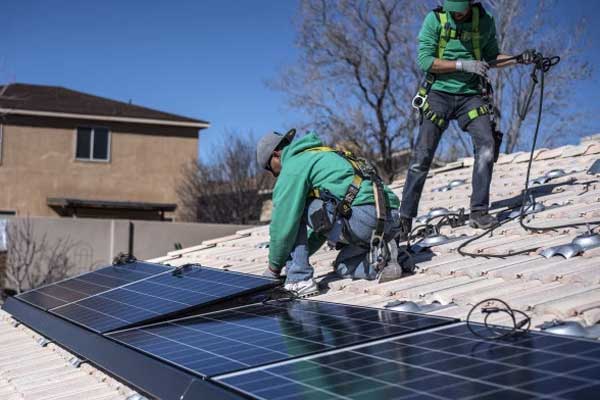- Xcel Energy donated $1.5 million to address food insecurity and other relief efforts in the eight states it serves.
- The company announced net proceeds from the sale of the Mankato Energy Center, expected to be more than $20 million, will support short-term and long-term corporate giving, including COVID-19 relief efforts.
- The Xcel Energy Foundation created a matching gifts campaign that offered employees a 2-to-1 match on their donations. Within a week, that campaign generated more than $450,000 in donations for charitable organizations, including the match.
Minneapolis — Xcel Energy Xcel Energy is increasing its ongoing support to customers and communities impacted by the coronavirus pandemic, while making significant strides in reaching its clean energy goals, reporting its largest-ever single-year reduction in carbon in 2019. Those details were released today in its annual Corporate Responsibility Report, which demonstrates how the company is meeting its community, environmental and economic commitments, while also providing COVID-19 relief.
Xcel Energy is the first major U.S. power company to announce a vision to provide 100% carbon-free electricity by 2050, while keeping service reliable and customer bills low, with an interim goal of reducing emissions 80% by 2030.
“Our customers need reliable, affordable energy they can count on to power their homes and businesses now more than ever,” said Ben Fowke, chairman and CEO of Xcel Energy. “But they also need us to continue to drive economic growth, partner with local businesses, protect the environment, and support the needs of their communities during the coronavirus pandemic. Our Corporate Responsibility Report demonstrates our ongoing commitment to them and the communities we serve.”
Supporting local communities
Xcel Energy has a long history of supporting the communities it serves with charitable giving and paid employee volunteer time. In response to the coronavirus pandemic, the company has stepped up those efforts even more.
Xcel Energy and the Xcel Energy Foundation donated $1.5 million to address food insecurity and other relief efforts in the eight states it serves.
The company announced net proceeds from the sale of the Mankato Energy Center, expected to be more than $20 million, will support short-term and long-term corporate giving, including COVID-19 relief efforts.
The Xcel Energy Foundation created a matching gifts campaign that offered employees a 2-to-1 match on their donations. Within a week, that campaign generated more than $450,000 in donations for charitable organizations, including the match.
Xcel Energy employees volunteered nearly 82,000 hours and served on more than 500 community boards last year. Together, Xcel Energy employees, the company and its foundation donated more than $11 million in volunteer time and charitable gifts to nonprofits in 2019.
Leading the clean energy transition
Even in the midst of the COVID-19 pandemic, Xcel Energy continues to lead the clean energy transition, delivering the results its customers and stakeholders want.
In 2019 the company reduced carbon emissions 44% from 2005 levels, reporting its largest ever single year drop, and moving it more than halfway to its goal of reducing emissions 80% by 2030.
Xcel Energy also completed construction of three company-owned wind farms as part of its Steel for Fuel strategy—the nation’s largest multi-state wind expansion project. By the end of 2021, Xcel Energy will own five times as much wind generation as it did in 2016.
Earlier this year, the company announced a comprehensive plan for cutting emissions from its natural gas system, while maintaining reliable and affordable service, with a $1.4 billion investment to secure pipelines and reduce methane emissions. Xcel Energy also joined ONE Future, a consortium of natural gas companies committed to keeping methane reductions below 1%.
Xcel Energy’s annual Corporate Responsibility Report tracks nonfinancial performance and includes information related to environmental impact, safety, economic development, community giving and workplace programs.














Comments